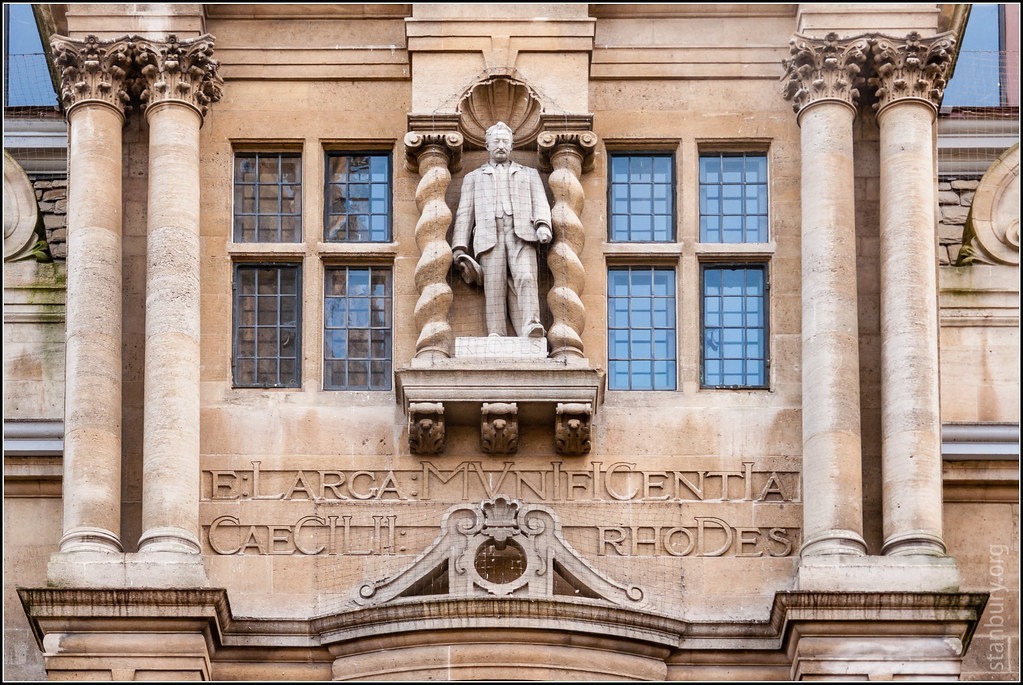Cecil Rhodes statue will not be removed by Oriel College
A statue of British imperialist Cecil Rhodes will not be taken down for now, according to Oriel College.
This comes despite an independent commission into the statue voting in favour of its removal.
In a statement, Oriel College said that it would not “begin the legal process” of moving the Rhodes statue at this time due to “regulatory and financial challenges” presented by its removal.
It said that the “challenges and costs” of removing the statue, in terms of heritage and planning consent, could run into years, with no certainty of the outcome. Any decision to move the statue would require planning permission from both Oxford City Council and Historic England.
The statement added: “In light of the considerable obstacles to removal, Oriel’s governing body has decided not to begin the legal process for relocation of the memorials.
“Instead, it is determined to focus its time and resources on delivering the report’s recommendations around the contextualisation of the college’s relationship with Rhodes, as well as improving educational equality, diversity and inclusion amongst its student cohort and academic community.”
It has been a careful, finely balanced debate and we are fully aware of the impact our decision is likely to have in the UK and further afield
– Lord Mendoza, provost of Oriel College
The recommendations the college has pledged to adopt immediately include a new tutor for “equality, diversity and inclusion” and additional training for academic and non-academic staff.
Lord Mendoza, provost of Oriel College, said: “It has been a careful, finely balanced debate and we are fully aware of the impact our decision is likely to have in the UK and further afield.
“We understand this nuanced conclusion will be disappointing to some, but we are now focused on the delivery of practical actions aimed at improving outreach and the day-to-day experience of BME students.
“We are looking forward to working with Oxford City Council on a range of options for contextualisation.”
Simukai Chigudu, an associate professor of African politics at the University of Oxford, described the decision from the governing body as “chilling”. He said: “The statement from Oriel College is shocking and, quite frankly, embarrassing. It exposes the insincerity of the college’s stated commitment to change, which was made last summer during the anti-racism protests.
“Most chilling however is the waffle and obfuscation in the college’s statement. The statement claims that the process of removing the statue would be too expensive and would yield no certain outcome. What does that mean? As an alternative to taking down the state, Oriel says they will increase provisions for BAME students. But framing this as a binary choice is both false and insulting.”
Rhodes was a student at Oxford and a member of Oriel College in the 1870s, and left a bequest to the college on his death in 1902. A scholarship in his name has been awarded to more than 8,000 overseas students.
He is also considered to be one of the founders of South African racial segregation and his statue is seen as constant reminder of white supremacy, colonialism and racism.
The Rhodes Must Fall movement began in 2015 at Cape Town University, South Africa, where a Rhodes statue was removed.
It was adopted by campaigners in Oxford in 2016, who argued that his views were incompatible with the university’s “inclusive culture”, and there have been calls to remove the statue since.

Comments